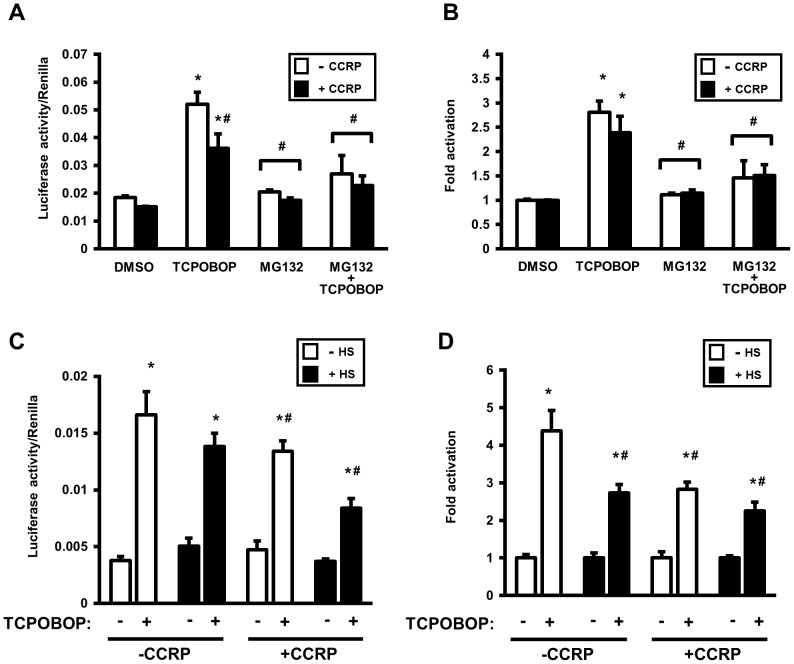Figure 6. Thermal stress attenuates TCPOBOP-induced CAR transcriptional activation in HepG2 cells, similar to the effect of proteasomal inhibition.
Luciferase activity of each sample was normalized to Renilla activity, and expressed as means ± SD of triplicate determinations. Shown is representative of three independent experiments. (A and B) Experiments were performed as described in Fig. 3, however empty vector or pcDNA3.1/V5-His-mCCRP was cotransfected with pcDNA3.1/V5-His-mCAR, -1.8-kb-luc, and phRL-tk (as normalization control). After transfection, cells were treated for 24 hr with DMSO (0.1% v/v), TCPOBOP (250 nM dissolved in 0.1% DMSO, final concentrations), MG132 (5 µM in 0.1% DMSO, final concentrations), or MG132 plus TCPOBOP, after which cells were harvested and luciferase activity measured. For fold-change determinations (B), each group was normalized to its corresponding DMSO-treated control (set as 1). Statistics are based on one-way ANOVA with post-hoc Tukey multiple comparisons test. *Significantly different (p<0.0001) compared to DMSO; and #significantly different (p<0.002) compared to TCPOPOP without CCRP overexpression. (C and D) Experiments and data analysis were performed as in A and B, with an incubation step at 42°C for 1 hr for heat-shock-designated cells performed prior to 24 hr treatment with DMSO (0.1% v/v) or TCPOBOP (250 nM in 0.1% DMSO, final concentrations). For fold-change determinations (D), each group was normalized to its corresponding DMSO-treated control (set as 1). Statistics are based on one-way ANOVA with post-hoc Tukey multiple comparisons test. *Significantly different (p<0.0001) compared to corresponding DMSO control treatment; #significantly different (p<0.001) to TCPOPOP alone (without both CCRP overexpression and heat shock).

